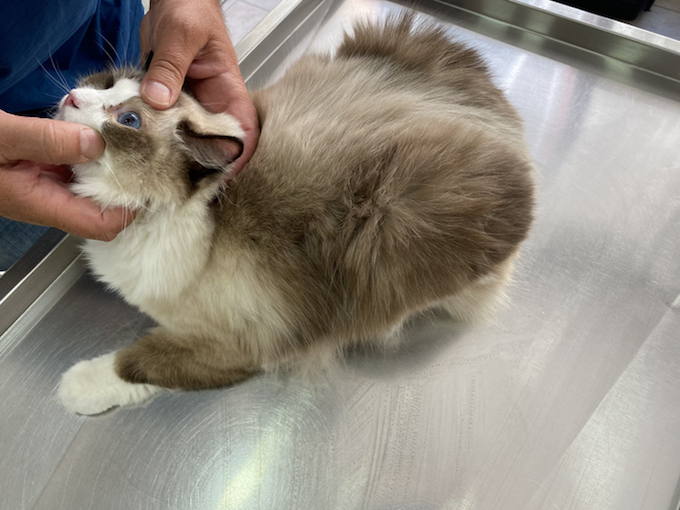Deafness in cats often happens when a cat experiences full or partial hearing loss. The condition is often congenital, which means a cat is born with it.
Interestingly, white haired cats and blue eyed cats seem most at risk of the condition.
Additionally, certain breeds suffer from the condition more than others, including Persians, Ragdolls, and Scottish Folds.
If you see the signs of deafness in your cat, then get to a veterinarian for a proper diagnosis and treatment.
Here’s what you should know about the symptoms, causes, and treatments for the condition.
Symptoms of Deafness in Cats
The condition produces a range of symptoms that affect a cat’s hearing. For example, some of the common symptoms include:
- Not responding to their name
- Not responding to very loud sounds
- Meowing louder than normal
- Inflamed ear area
- Not responding to daily sounds
Causes of Deafness in Cats

The cause of the condition is sometimes congenital. This means that a cat is born with it. Some of the other common causes include:
- Tumors
- Inflammation
- Infections
- Trauma
- Getting older
- Ear mites
- Ear drum problems
Additionally, certain breeds of cat are at higher risk of the condition. For instance, some of those breeds include:
- Persian
- Ragdoll
- Scottish Fold
- Turkish Angora
- Maine Coon
- Cornish Rex
- Oriental Shorthair
Treatments for Deafness in Cats
Firstly, your vet will ask about your cat’s symptoms. Secondly, your vet will ask about your cat’s medical history. This will include any breed-specific issues.
Thirdly, a full physical examination will be carried out.
In many cases, X-rays can also be used to confirm the condition.
Unfortunately, there is no cure for the condition if a cat is born with it. However, catching the condition early always helps.
For instance, antibiotics can be used if an infection is present. As always, if your vet prescribes your cat any medicine, make sure to stick to the correct dose and frequency instructions. Also, complete the full course of medicine.
Generally, the condition needs to be managed. This can involve making changes to your cat’s home setup. Additionally, limiting your cat’s outdoor access can be helpful.
Have you ever cared for a cat who suffered from this condition? How did your vet help your cat recover? Let us know in the comments section below.









